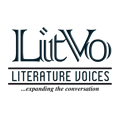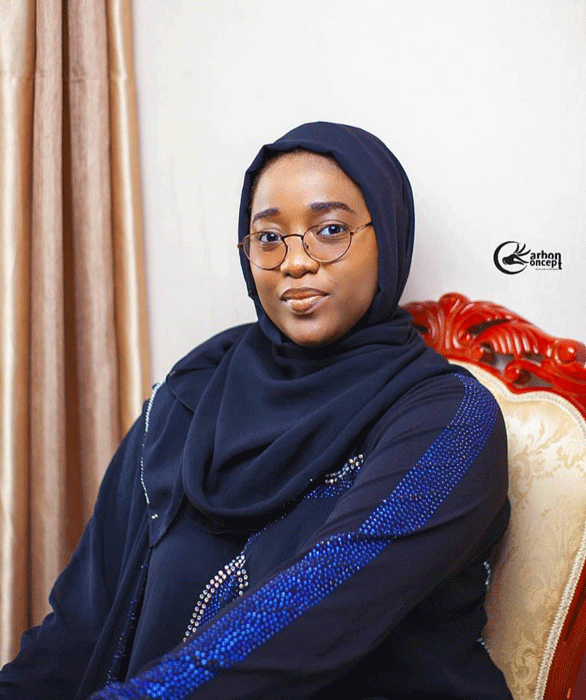“Writing is not for the fainthearted” AN INTERVIEW WITH BASIT JAMIU
By Haneefah AbdulRahman (Literature Voices)
(Basit Jamiu is the Founding Editor of Afro Anthology Series. His works have appeared in African Writer, Brittle Paper, Afri Diaspora, Kalahari Review, Saraba Magazine, Praxis Magazine Online, Expound Magazine and many other platforms. In 2018, he was the recipient of YNaija’s New Establishment list for his work at Afro Anthology. He has been described as among the “top curators and editors from Africa”. He tweets @CuratorBasit and watches TV Series among other fun activities.)
Haneefah: Good day sir, my name is Haneefah AbdulRahman from Literature Voices. Thanks for making out time to join us here on this interview. What is the relationship between you and literature or books?
Basit: I am not sure I understand what you mean by relationship but I will like to think that you wanted to ask about my passion for literary things. I love stories because whether I am writing it or reading it, there is an unexplainable peace I find in the presence of them.
Haneefah: Literature screams in an extremely loud voice for justice. Man is perpetually in conflict, needing justice. You find all kinds of struggles in novels, poetry, plays and non-fiction pieces; yet, artistes claim that art is primarily about entertainment. Meanwhile, writers are always at the forefront of conversations in the society. How do you relate the primary aim of art being largely for entertainment to the increasing demand for the appropriation of society that will lead to the reversal of the awkward human conditions which have distorted the society? Is the philosophy that art is primarily about entertainment still valid?
Basit: Art is about whatever an individual sees it to be. Art is subjective and personal. It is also porous and elastic when an attempt is made to define it. For that I mean art can be bent at all times to accommodate a particular narrative or struggle. Art is therapeutic. Art is comforting. Art is influential. For Chinua Achebe, art is primarily a form of education and a lot of people agree with him. For many others, it is purely entertainment. For some, it is both. Art should be allowed to be all those things to people but the moment the freedom of art is stifled to accommodate one definition; the moment art is censored to fit just one narrative, then the future of art is not just bleak but in danger of erasure.
Haneefah: In 2018, you curated an anthology and you stated in your note: “Selves, is a circuit of shared inwardness.” It is obvious that The Afro Anthology Series has become an important part of you today. What is this Afro Anthology Series? Why did you choose nonfiction for the project?
Basit: AfroAnthology is a curatorial revolution for creative non-fiction. It was created in 2017 to promote non-fiction by African writers. Non-fiction, as you know, represents the lowest percentage of the total literary output coming from Africa. My team and I wanted to create a space that improves both the quantity and quality of creative nonfiction in Africa. The award-winning Selves was the first anthology we published and the reception it received was a testament of how important and relevant AfroAnthology as a platform is for the development of African literature.
Haneefah: For decades, black people have suffered as a result of racism and many blacks have sacrificed their lives for the institution of justice; yet, racism is a weapon that has been unbreakable. Does AfroAnthology Series have a connection with the fight against racism? Remember, it tends to restrict white people from being published in the series as it is for African writers.
Basit: AfroAnthology has connections with anything that fights injustice. We are a platform that listens to genuine voices who want to be heard. As I have stated earlier, our focus is Africa because of how much needs to be done in the continent as regards to non-fiction.
Haneefah: Rene Maran was the first to write against the unjust treatment inflicted by the whites in his novel BATOULA even though he wrote in ambivalence because he was scared of the consequence. We find African writers who still dwell in fear when they write, as such leaving serious afflictions undiscussed. What do you suggest in solving this problem?
Basit: The decision not to write out of fear is valid but to be a good writer, courage is an important requirement. Writing is not for the fainthearted.
Haneefah: Africans were called barbarians and also termed as a people without leadership, which is one of the major reasons that prompted Chinua Achebe to write his novel ‘Things Fall Apart’ thus defending Africans and their culture. Ukamaka Olisakwe in RECLAIMING MY BODY and THE WEIGHT OF YEARS laments her predicament after childbirth and keeping her duty to please her husband according to the African tradition even though it hurts. In Hauwa Saleh’s “ALL CRUMBS LEAD HOME”, she feels everything is strange in Lagos as a northern Nigerian girl but while she is trying to adapt, she goes through ups and downs like the instance when she is called Buhari’s sister by some men who think Buhari’s governance is bad. From these instances in ‘THE WEIGHT OF YEARS”, should we say Africans have barbarian culture and are also discriminatory?
Basit: You will find things people consider to be barbaric and discriminatory in any part of the world you visit today but that’s not the focus here for me. What is important is the level at which that society or country is working towards improving and eschewing things that are considered barbaric and discriminatory. I consider Africa to be one of the foremost places in the world doing its best to improve the lives of its people while also protecting them against any form of barbarism and discrimination.
Haneefah: ‘SELVES’ was a rave of the moment and now you are back with another rave, “THE WEIGHT OF YEARS”. I have gone through the collection and it seems very personal. Does non-fiction have to be painful to be entertaining?
Basit: At AfroAnthology, we see non-fiction as democratic. By that, I mean nonfiction is free to be many things to people. It can be fun to read and it can be therapeutic. It can be painful. It can also be comforting. Non-fiction isn’t one thing. It doesn’t necessarily have to be painful. Non-fiction is primarily about whatever the writer wants it to be.
Haneefah: Your piece, “Sea Beard” is an emotional rollercoaster and one thing with non-fiction is the not-too-perfect endings, can you share with us what it took you to pen down something as captivating as that or what writing your story and putting it out there has done for you? Don’t you feel letting people read a delicate part of you is opening yourself up for criticisms and stigmatization?
Basit: “Sea Beard” is a personal story about love, family and religion. It is also about the struggle we encounter as human beings. I wanted to show that no matter how strong our affiliation to institution or religion is, we are still humans. The positive response I have received concerning the story so far has shown that I was able to achieve those outlined motives for the story. I am not sure I understand how writing “Sea Beard” will attract criticism and stigmatization on my part but it may comfort you to know that I am a writer who is always open to criticism and every other thing that comes from being a writer.
Haneefah: During an interview on ‘Selves’, you said you had a lot of challenge publishing the stories in print. This time around, “The Weight of Years” is online, how can you compare your experiences while publishing the two anthologies? What do you hope to achieve from curating this marvelous series?
Basit: Yes, there were a lot of challenges I experienced while undergoing the transition of “Selves” from ebook to print. I have outlined these challenges in several interviews that are currently available online. Ebook publishing is my forte. By that I mean I know how it works and I understand all the technicalities. Publishing “The Weight of Years” took the same effort as publishing “Selves” because they required the same steps. My expectations for the series? I want the series to fill the current gaps in African literature, to be an archive for future generations. I also want readers who are interested in reading quality works of non-fiction to find home in the series
Haneefah: You have been labeled a bookworm countlessly and not just that, but an intelligent writer. In all the books you have encountered on earth, can you share with us at least five of your favourites of all time that have made impact on you?
Basit: I have so many impactful books but here are five that readily come to mind now: DISGRACE by J. M. Coetzee. THE STRANGER by Albert Camus. AN AREA OF DARKNESS by V. S. Naipaul. BROTHER, I AM DYING by Edwige Danticat. THE FRIEND by Sigrid Nunez.
Haneefah: Every African writer has battles to overcome. As the founder of ‘The Afro Anthology Series’, one of your purposes is obviously to help each writer win his battles in African literature and society. Are you realising this goal?
Basit: Yes. Yes.
Haneefah: Mention the titles of your works. What are you currently working on or what should we expect from your end in the nearest future?
Basit: If by mention “the titles of your works”, you mean some of my published stories, then here are some: “Iworoko”, “Na For Sell”, “You Are in Love with Your Future Dreams.” I am currently working on a novel and in the nearest future you should expect me to be older than I am now or simply dead.
Haneefah: Thanks for your time.
Basit: Thank you too.
Haneefah AbdulRahman is a spoken word artiste, poet, writer, interviewer and social entrepreneur. She has published some of her articles, short stories and poems in different journals including the Nigeria Review. She is the Financial Secretary and Editor I of Creative Writers’ Club, Ahmadu Bello University, Zaria where she studies Literature. She is from Kogi State, Nigeria and lives in Kaduna. Email: abdulrahmanhanifah2017@gmail.com, IG: neefahwords, BLOG: trendyneefah.blogspot.com, Twitter: neefahwords_, Facebook: Haneefah Abdulrahman, YouTube: Hanifah Abdulrahman.











Leave a Review